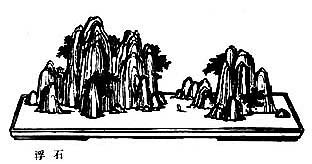詩
經
Shi Jing 
 – Le Canon des Poèmes
– Le Canon des Poèmes
Le plus ancien recueil connu de poésie chinoise, plus de trois cents chansons, odes et hymnes. Tr. Legge (en) et Granet (fr, incomplète).
Shijing II. 6. (212)
Large are the fields, and various is the work to be done.
Having selected the seed, and looked after the implements,
So that all preparations have been made for our labour,
We take our sharp plough-shares,
And commence on the south-lying acres.
We sow all the kinds of grain,
Which grow up straight and large,
So that the wish of the distant descendant is satisfied.
It ears, and the fruit lies soft in its sheath ;
It hardens and is of good quality ;
There is no wolf ' s-tail grass, nor darnel.
We remove the insects that eat the heart and the leaf,
And those that eat the roots and the joints.
So that they shall not hurt the young plants of our fields.
May the Spirit, the Father of husbandry,
Lay hold of them, and put them in the blazing fire !
The clouds form in dense masses,
And the rain comes down slowly.
May it rain first on our public fields,
And then come to our private !
There shall be young grain unreaped,
And here some sheaves ungathered ;
There shall be handfuls left on the ground,
And here ears untouched : –
The distant descendant will come,
When their wives and children,
Are bringing food to those [at work] on the south-lying acres.
The surveyor of the fields [also] will come and be glad.
They will come and offer pure sacrifices to the Spirits of the four quarters,
With their preparations of millet :
Thus offering, thus sacrificing,
Thus increasing our bright happiness.
Legge 212

Le Canon des Poèmes – Shi Jing II. 6. (212) – Chinois on/off – Français/English
Alias Shijing, Shi Jing, Book of Odes, Book of Songs, Classic of Odes, Classic of
Poetry, Livre des Odes, Canon des Poèmes.
Le Canon des Poèmes, Les Entretiens, La Grande Étude, Le Juste Milieu, Les Trois Caractères, Le Livre des Mutations, De la Voie et la Vertu, 300 poèmes Tang, L'Art de la guerre, Trente-six stratagèmes
Bienvenue, aide, notes, introduction, table.
Index – Contact – Haut de page
